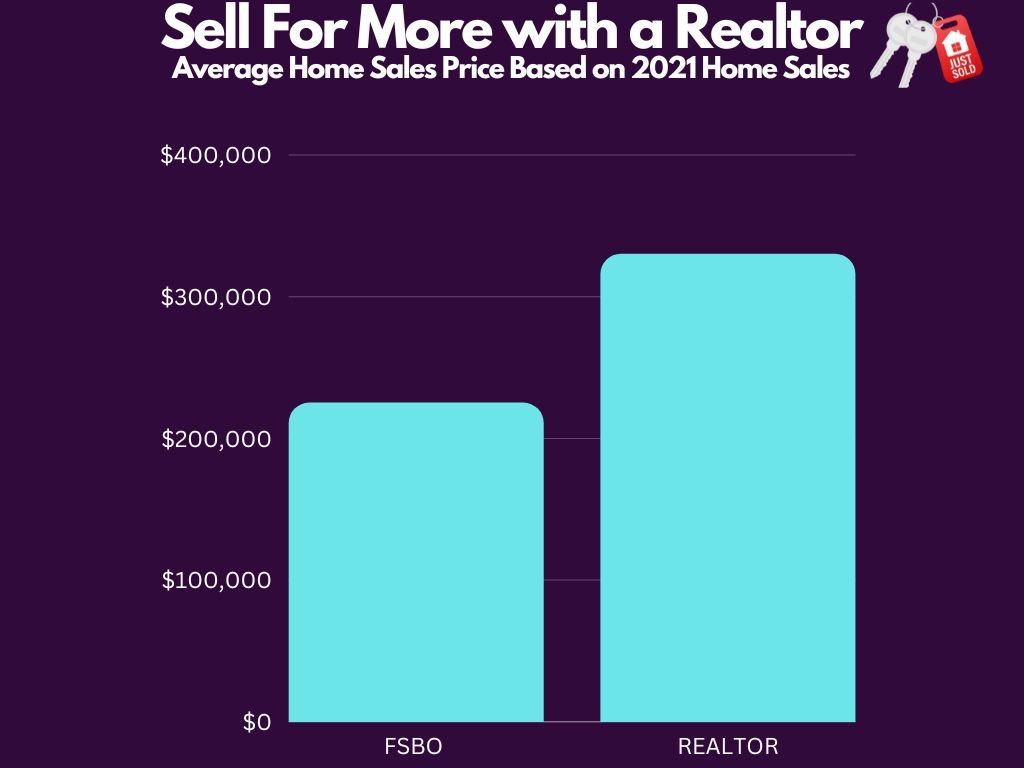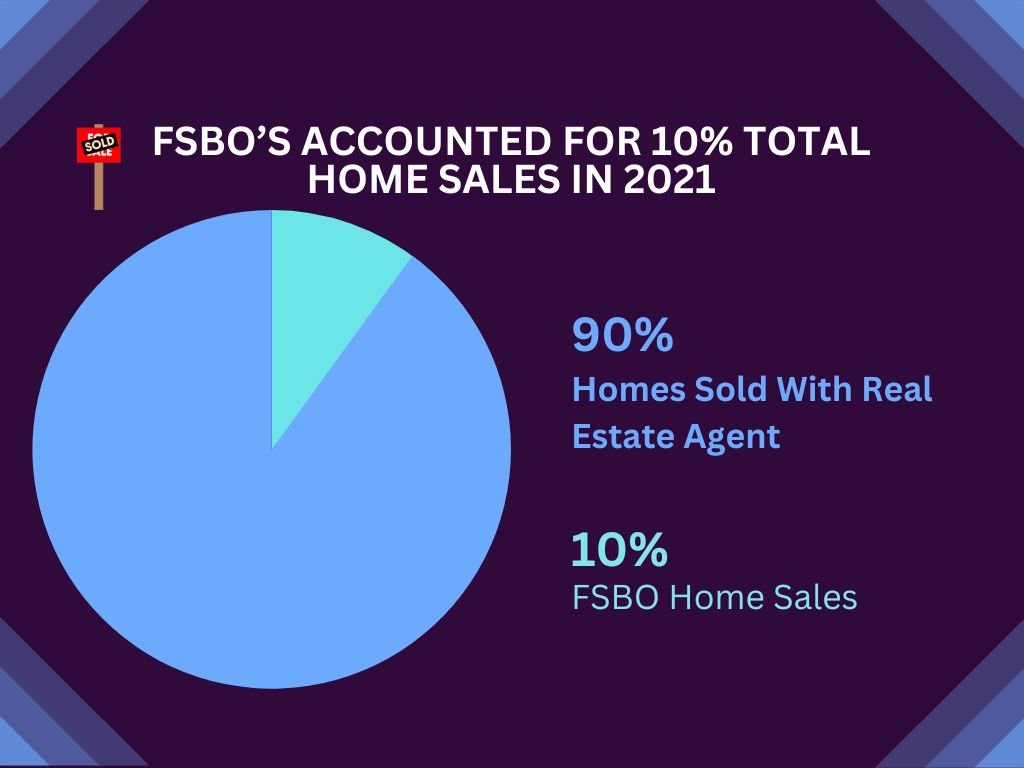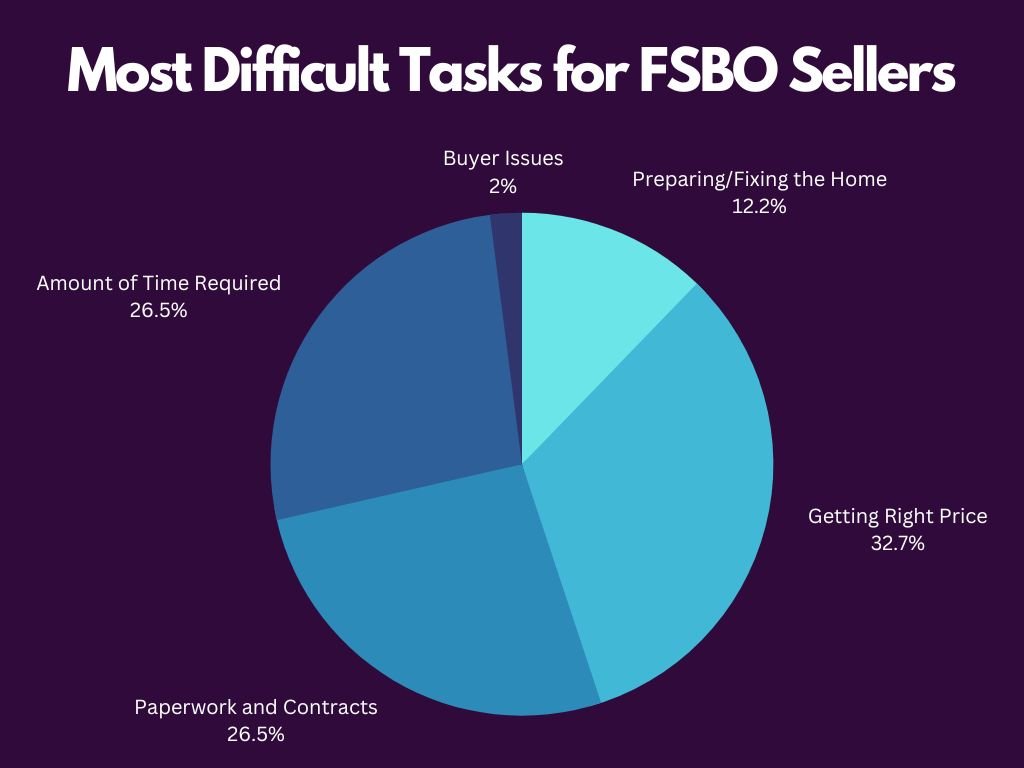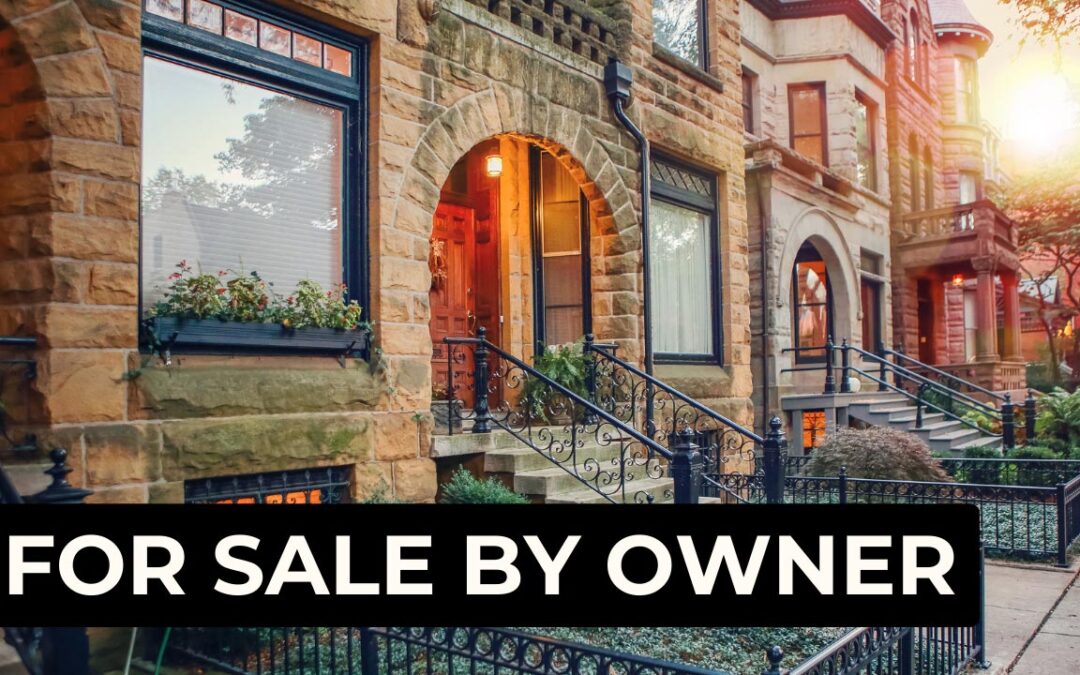Once you have made the decision to sell your home and have researched the Illinois real estate market, this guide can assist with how to sell a house by owner in Illinois, the role of the real estate attorney, and calculating the cost/benefit analysis of a (For Sale By Owner) FSBO sale compared to using a real estate agent This guide will also cover the responsibility and liability regarding the Illinois Real Estate Property Disclosure Act., which requires sellers to disclose conditions of the home or defects known.

Do the Homework Necessary to set a Competitive Price
Once you have made the decision to sell your house and have decided on a FSBO sale, it’s time to determine the sales price to sell your home quickly.
Determining the Sale Price:
Comparative Market Analysis (CMA)
A Comparative Market Analysis (CMA) is an integral part of setting the right sale price for your property. A CMA involves:
- Examining Comparable Properties: Your real estate agent, if you choose to hire one for specific tasks, can help identify recently sold properties in your area that are similar to yours in terms of size, condition, and location. If you are selling your own home, you can check real estate websites and county tax records to help determine a value.
- Adjusting for Differences: Adjustments are made to account for differences between your property and the comparable sales. For example, if your property has an additional bedroom or an updated kitchen, this could increase its value.
Factors Influencing the Sale Price
Several factors can influence your home’s sale price:
- Location: The neighborhood, school district, and proximity to amenities all impact your home’s value.
- Size and Layout: The size of your property, including the number of bedrooms and bathrooms, plays a significant role.
- Condition: The overall condition of your home, including any recent updates or repairs, can affect the sale price.
- Market Conditions: The current state of the real estate market, including supply and demand, can influence pricing.

FSBO Sales Accounted for 10% of Total Home Sales
Marketing Your Home: How to Sell a House by Owner in Illinois
Creating an Effective Listing Description
Your listing description is the first impression potential buyers have of your property. Write a compelling description that highlights your home’s best features and addresses key selling points. Be honest and informative. Mention unique aspects of your property, such as a new roof, updated kitchen, or spacious backyard.
High-Quality Photographs and Virtual Tours
Quality photographs are a must in today’s real estate market. Consider hiring a professional photographer to capture your home’s best angles. Virtual tours are also becoming increasingly popular, allowing potential buyers to explore your home online.
Yard Signs
Place a “For Sale” sign in your yard to attract the attention of passersby. This simple but effective marketing tool lets people know your property is available.
Real Estate Websites
Numerous real estate websites and online platforms allow you to list your FSBO property. Some popular options include Zillow and ForSaleByOwner.com. Utilize these platforms to increase your property’s exposure.
***While some real estate websites may let you list the home for sale by owner on their website, there may be additional charges to have your home for sale on the local MLS.
Social Media and Online Advertising
Leverage social media platforms, such as Facebook, Instagram, and Twitter, to promote your FSBO listing. Paid online advertising can also help you target a specific audience.
Prospective Buyers and Showings
Organizing Open Houses
Open houses provide an opportunity for multiple prospective buyers to view your property. Consider holding open houses on weekends or evenings to accommodate a wider range of schedules. Make sure the home is properly staged to show off the best features, while removing any personal photos and decorations that could be a turnoff for a potential buyer.
Working with Interested Buyers
As potential buyers express interest, be prepared to answer questions and provide additional information about your property. Being responsive and accommodating can enhance the buyer’s experience.
Screen Potential Buyers
It’s essential to pre-screen potential buyers to ensure they have the financial capacity to purchase your property. Request a mortgage pre-approval letter from buyers to verify their ability to secure financing.
Review, Compare, and Negotiate Offers
Negotiating the Sale
Handling Offers and Counteroffers
When offers start coming in, you’ll need to decide how to respond. Consider the following:
- Multiple Offers: If you receive multiple offers, carefully evaluate each one. You may choose to accept one or counteroffer to get the best deal.
- Negotiating Terms: Be prepared to negotiate terms, including the sale price, closing date, and contingencies. A real estate attorney can help facilitate this process.
- Buyer’s Financial Capacity: Assess the buyer’s financial capability to close the deal. A mortgage pre-approval letter can provide confidence in their ability to secure financing.

Paperwork to Sell a House by Owner in Illinois
In most Illinois real estate transactions, your real estate agent will ensure that you complete all the necessary documentation and disclosures required by Illinois. FSBO sellers may not be familiar with the required forms to sell a house in Illinois, which could require additional research and costs to obtain.
Who draws up the contract in a for-sale-by-owner transaction in Illinois?
The buyer’s agents usually write and prepare the contract when the offer is first made. FSBO sellers should become comfortable with the sales contract, or hire a real estate attorney to assist with just the negotiations and legal aspects.
Illinois Property Disclosure Act
The Illinois Property Disclosure Act is a state law in Illinois that requires property sellers to provide prospective buyers with a disclosure document that contains information about the condition of the property. A Chicago-based real estate attorney, like Alex Ranjha, can be a good resource when selling a house by owner in Illinois. This law is designed to ensure that buyers have access to essential information about the property they are considering purchasing. Here are some key points to understand about the Illinois Property Disclosure Act:
Overview of the Illinois Property Disclosure Act:
- Purpose: The main purpose of the Illinois Property Disclosure Act is to protect buyers from undisclosed defects or problems with a property. By requiring sellers to provide a disclosure statement, it helps buyers make informed decisions about whether to proceed with a real estate transaction.
- Disclosure Statement: Sellers are typically required to complete a standardized disclosure form provided by the state. This form includes a series of questions about the property’s condition, any known issues, and other relevant information. Sellers are expected to provide honest and accurate answers to the questions on the form.
- Mandatory Disclosure: Illinois law mandates certain disclosures that must be made. These typically include information about the property’s physical condition, known defects, and environmental concerns, such as lead-based paint or radon gas. Sellers must also disclose information related to any recent major repairs or replacements, such as the roof, HVAC systems, or plumbing.
- Exemptions: While most residential property sales in Illinois are subject to the Property Disclosure Act, there are exceptions. For instance, properties that have never been occupied, such as new construction, are often exempt. It’s essential to check with your real estate agent or attorney to determine if the Act applies to your specific transaction.
- Timeframe: Typically, the property disclosure document is provided to the buyer early in the transaction process (before signing a contract). The buyer will have a specific period to review the disclosure and potentially negotiate repairs or request more information.
- Liability: Sellers are legally obligated to provide accurate information on the disclosure statement. Failure to do so can lead to legal consequences. Buyers may have legal recourse if they discover undisclosed defects after the sale has been completed. Therefore, it is in the best interest of sellers to be thorough and honest in their disclosures.
- Legal Advice: Both buyers and sellers are advised to seek legal counsel when dealing with real estate transactions in Illinois. Real estate agents may also play a role in facilitating the process and ensuring compliance with the law.
Who is considered a seller according to the act:
(1) is a beneficiary of an Illinois land trust; or
(2) has an interest, legal or equitable, in
residential property as:
(i) an owner;
(ii) a beneficiary of a trust;
(iii) a beneficiary pursuant to testate
disposition, intestate succession, or a transfer on death instrument; or
(iv) a contract purchaser or lessee of a ground lease.
Who is exempt from Completing the Illinois Seller’s Disclosure?
Seller exemptions: A seller in any of the following transfers is exempt from this Act, regardless of whether a disclosure report is delivered:
(1) Transfers pursuant to court order, including, but not limited to, transfers ordered by a probate court in administration of an estate, transfers between spouses resulting from a judgment of dissolution of marriage or legal separation, transfers pursuant to an order of possession, transfers by a trustee in bankruptcy, transfers by eminent domain, and transfers resulting from a decree for specific performance.
(2) Transfers from a mortgagor to a mortgagee by deed in lieu of foreclosure or consent judgment, transfer by judicial deed issued pursuant to a foreclosure sale to the successful bidder or the assignee of a certificate of sale, transfer by a collateral assignment of a beneficial interest of a land trust, or a transfer by a mortgagee or a successor in interest to the mortgagee’s secured position or a beneficiary under a deed in trust who has acquired the real property by deed in lieu of foreclosure, consent judgment or judicial deed issued pursuant to a foreclosure sale.
(3) Transfers by a fiduciary in the course of the administration of a decedent’s estate, guardianship, conservatorship, or trust. As used in this paragraph, “trust” includes an Illinois land trust.
(4) Transfers from one co-owner to one or more other co-owners.
(5) Transfers from a decedent pursuant to testate disposition, intestate succession, or a transfer on death instrument.
(6) Transfers made to a spouse, or to a person or persons in the lineal line of consanguinity of one or more of the sellers.
(7) Transfers from an entity that has taken title to residential real property from a seller for the purpose of assisting in the relocation of the seller, so long as the entity makes available to all prospective buyers a copy of the disclosure report furnished to the entity by the seller.
(8) Transfers to or from any governmental entity.
(9) Transfers of newly constructed residential real property that has never been occupied. This does not include rehabilitation of existing residential real property.
It’s crucial for both buyers and sellers in Illinois to understand the requirements and implications of the Illinois Property Disclosure Act. Consulting with legal professionals and experienced real estate agents can provide guidance and ensure compliance with the law, ultimately leading to a more transparent and successful real estate transaction.
Liability When Your Sell a House by Owner in Illinois: Residential Real Estate Property Disclosure Act
Liability of Seller:
(a) The seller is not liable for any error, inaccuracy, or omission of any information delivered pursuant to this Act if (i) the seller had no knowledge of the error, inaccuracy, or omission, (ii) the error, inaccuracy, or omission was based on a reasonable belief that a material defect or other matter not disclosed had been corrected, or (iii) the error, inaccuracy, or omission was based on information provided by a public agency or by a licensed engineer, land surveyor, structural pest control operator, or by a contractor about matters within the scope of the contractor’s occupation and the seller had no knowledge of the error, inaccuracy, or omission.
(b) The seller shall disclose material defects of which the seller has actual knowledge.
(c) The seller is not obligated by this Act to make any specific investigation or inquiry in an effort to complete the disclosure statement.
How Long Can a Seller be Liable for Violations of the Act?
- If the seller fails or refuses to provide the disclosure report prior to the conveyance of the residential real property, the prospective buyer shall have the right to terminate the contract. A seller who knowingly violates or fails to perform any duty prescribed by any provision of this Act or who discloses any information on the Residential Real Property Disclosure Report that the seller knows to be false shall be liable in the amount of actual damages and court costs, and the court may award reasonable attorney’s fees incurred by the prevailing party.
- No action for violation of this Act may be commenced later than one year from the earlier of the date of possession, date of occupancy, or date of recording of an instrument of conveyance of the residential real property.
12 Mistakes to Avoid: For Sale By Owner
Selling a property as a For Sale By Owner (FSBO) can save you money on real estate agent commissions, but it comes with its own set of challenges. To increase your chances of success and avoid common pitfalls, here are some mistakes to avoid when selling your home as a FSBO:
- Overpricing the Property: One of the most common mistakes in FSBO listings is overpricing the property. Overpriced homes can deter potential buyers and result in the property sitting on the market for a long time. Research the local market and consider getting a professional appraisal to determine the right asking price.
- Neglecting Curb Appeal: First impressions matter. Neglecting the curb appeal of your property can deter potential buyers. Make sure the exterior of your home is well-maintained, including the landscaping and the appearance of the house itself.
- Inadequate Marketing: Marketing your property is essential to attract buyers. Many FSBO sellers fail to effectively market their homes. Take high-quality photos, create a compelling listing description, and use online real estate platforms, social media, and traditional advertising to reach a broad audience.
- Skipping Pre-Sale Preparations: Make necessary repairs and improvements before listing your property. A well-maintained home will not only attract more buyers but can also justify a higher asking price. Address issues like leaks, peeling paint, or outdated fixtures.
- Ignoring Legal Requirements: Real estate transactions come with legal and regulatory requirements. Ensure you comply with all local, state, and federal laws regarding property disclosures, contracts, and inspections. It’s wise to consult with a real estate attorney to help navigate these legal aspects.
- Ineffective Negotiation: Negotiating the sale of a property can be tricky. Inexperienced sellers may not negotiate effectively. Be prepared to respond to offers and counteroffers while keeping your end goals in mind. It can be beneficial to have a clear negotiation strategy.
- Not Preparing for Showings: Be ready for property showings at any time. Not accommodating potential buyers’ schedules or having a cluttered or dirty home during showings can drive away interested parties. Keep your home clean and organized, and make it easy for buyers to view your property.
- Failing to Screen Buyers: Some buyers may not be qualified or serious. Pre-screen potential buyers to ensure they have the financial capacity to purchase your property. This can save you time and avoid unnecessary hassles.
- Not Disclosing Property Issues: Failing to disclose known property issues can lead to legal trouble down the line. Be upfront about any problems or defects in your property to build trust with potential buyers.
- Rejecting Professional Help: While FSBO is an option, it doesn’t mean you should entirely reject professional assistance. Consider hiring a real estate attorney, appraiser, or even a transaction coordinator to help with paperwork, contracts, and legal aspects of the sale.
- Rushing the Process: Selling a property can be a lengthy process. Don’t rush it. Take the time to thoroughly prepare your property, conduct proper market research, and negotiate effectively.
- Being Inflexible: Be open to feedback and willing to adjust your approach if necessary. If you’re not receiving the interest or offers you want, consider reevaluating your pricing, marketing strategy, or any other aspect of your FSBO listing.
Selling a property as a FSBO can be a rewarding experience, but it requires careful planning and execution. Avoiding these common mistakes can help you achieve a successful sale and save on agent commissions.
According to the National Association of Realtors, here is the breakdown of the most difficult tasks for FSBO sellers:
Most difficult tasks for FSBO sellers:
- Preparing/fixing up home for sale: 6%
- Getting the right price: 16%
- Understanding and performing paperwork: 13%
- Selling within the planned length of time: 10%
- Having enough time to devote to all aspects of the sale: 1%
- Attracting potential buyers: 1%
- Helping buyers obtain financing: 1%
Selling a house by owner in Illinois, commonly referred to as FSBO, is a significant decision that requires careful consideration, preparation, and a clear understanding of the real estate market. This guide has aimed to provide valuable insights into the process of selling a property on your own in Illinois while addressing the pivotal question of whether to go the FSBO route or enlist the services of a real estate agent. It has also delved into the critical role of real estate attorneys, ensuring compliance with the Illinois Real Estate Property Disclosure Act, and understanding the nuances of calculating the cost-benefit analysis. According to the National Association of Realtors, the most challenging tasks for FSBO sellers include preparing and fixing up the home, getting the right price, understanding and performing paperwork, selling within the planned time frame, allocating enough time to all aspects of the sale, attracting potential buyers, and helping buyers obtain financing.
In conclusion, selling a house by owner in Illinois can be a rewarding venture with the potential to save on agent commissions. However, it demands a thorough understanding of the real estate market, legal requirements, and the ability to effectively market and negotiate. Success in a FSBO sale often hinges on informed decision-making and meticulous attention to detail, ensuring a transparent and successful real estate transaction.

